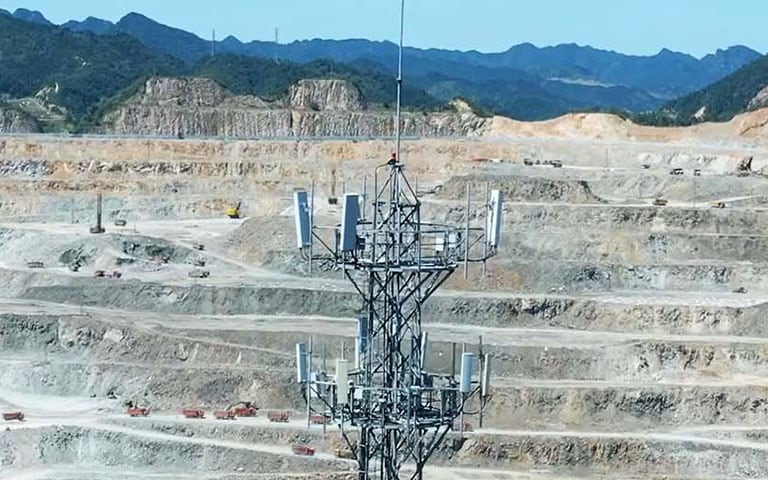From the world’s first unmanned mine to one of the deepest 5G networks
Dusty, hazardous, and yet essential. Mining is an indispensable industry that has been chronically unpleasant. Until now.
In China, Huawei has been working with partners to create integrated smart mining solutions at both open-pit and underground mines.
The results are dramatic. At open-pit mines, remotely-located operators can man up to four driverless trucks to ferry the ore from the excavator to the processing facility for crushing and processing. The excavators are also remote-controlled. Fewer miners in the pit means fewer chances of mining deaths or injuries.
No driver no danger
Wang Chaolei works at a China Molybdenum mine in Luanchuan County, in China’s Henan province. In the past, mindful of the potential dangers and challenges his job brought, he would have shared his wife and young daughter’s daily concern for his well-being. But as for thousands of mine working families, this is where 5G technology has provided a safety net to their lives. Through the deployment of base stations and use of AI and fully automated mining equipment, workers don’t have to be onsite anymore, but control equipment and machinery from a safe and more comfortable distance – away from the unstable ground or harsh weather. You can watch the impact on Mr Wang’s life here.
Click the link below to watch the video:
https://www-file.huawei.com/-/media/corp2020/media-center/video/transform/5g%20above%20ground%20unmanned%20mining%20for%20pc.mp4Huawei opened an Intelligent Mining Innovation Lab in Taiyuan, Shanxi, with the People’s Government of Shanxi Province, Jinneng Holding Group, and Shanxi Cloud Era Technology. The lab helps coal mines in Shanxi reduce staffing for high-risk positions, increase efficiency, and improve safety by exploring new uses of ICT technologies including wireless industrial control networks, industrial optical ring networks, and cloud computing.
The lab is staffed with 220 ICT and coal mining experts seeking to make breakthroughs in areas such as information networks, automation enablement, intelligent sensing technologies, and big data generated by coal mines, as well as related ecosystem collaboration opportunities.
Ultimately it aims to help Shanxi’s mines reduce staffing in fully mechanized and intelligent mining scenarios by 60% and the number of workers going down to mining pits each shift by 10% to 20%.
Coalface connectivity
And on the subject of going down to the pits in Shanxi, how about travelling to one that’s fully 5G connected despite being 534 metres underground? That’s more than half a kilometer down and makes it China’s – and one of the world’s – deepest 5G coal mine networks. It has enough 5G base stations to make video calls to the surface seamless. Watch the video to find out more.
Click the link below to watch the video:
https://www-file.huawei.com/-/media/corp2020/media-center/video/transform/mining%20qingyuan%20laptop.mp4How 5G is changing coal mining
Has 5G really changed the mining industry, and if so, how? Follow electrician Chen Jialong of Jinneng Holding Coal Group on his journey to Tashan Coal Mine of China’s Shanxi province, for a glimpse of how the transformative technology has enabled the centuries-old practice of mining.
Click the link below to watch the video:
https://www-file.huawei.com/-/media/corp2020/media-center/video/transform/how%205g%20is%20changing%20coal%20mining%20-%20a%205-min%20glimpse%20pc%20version.mp4



























